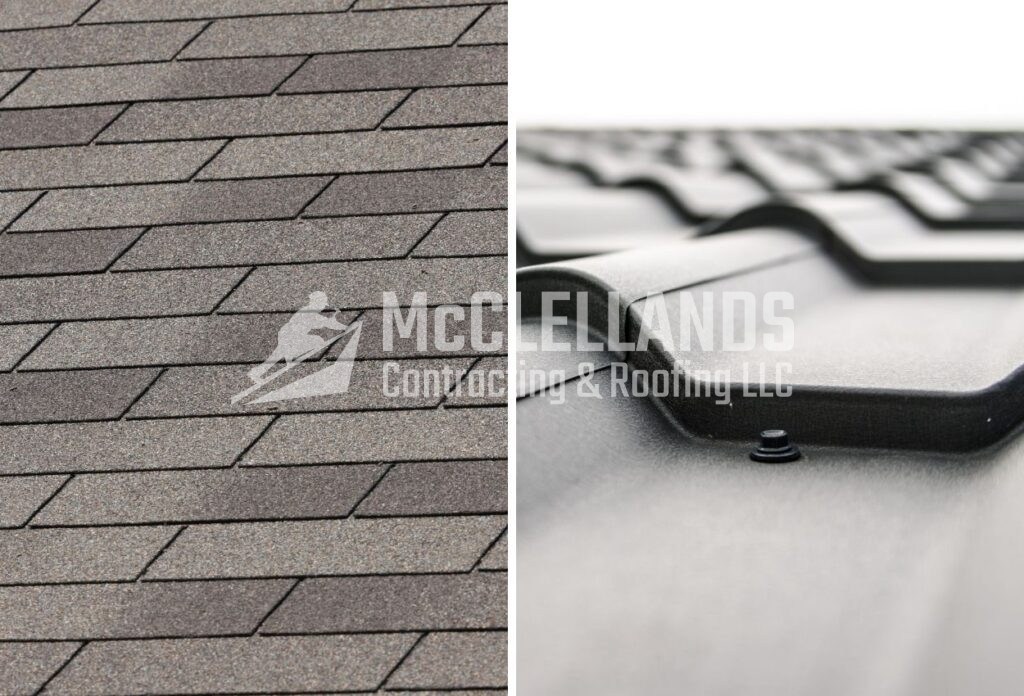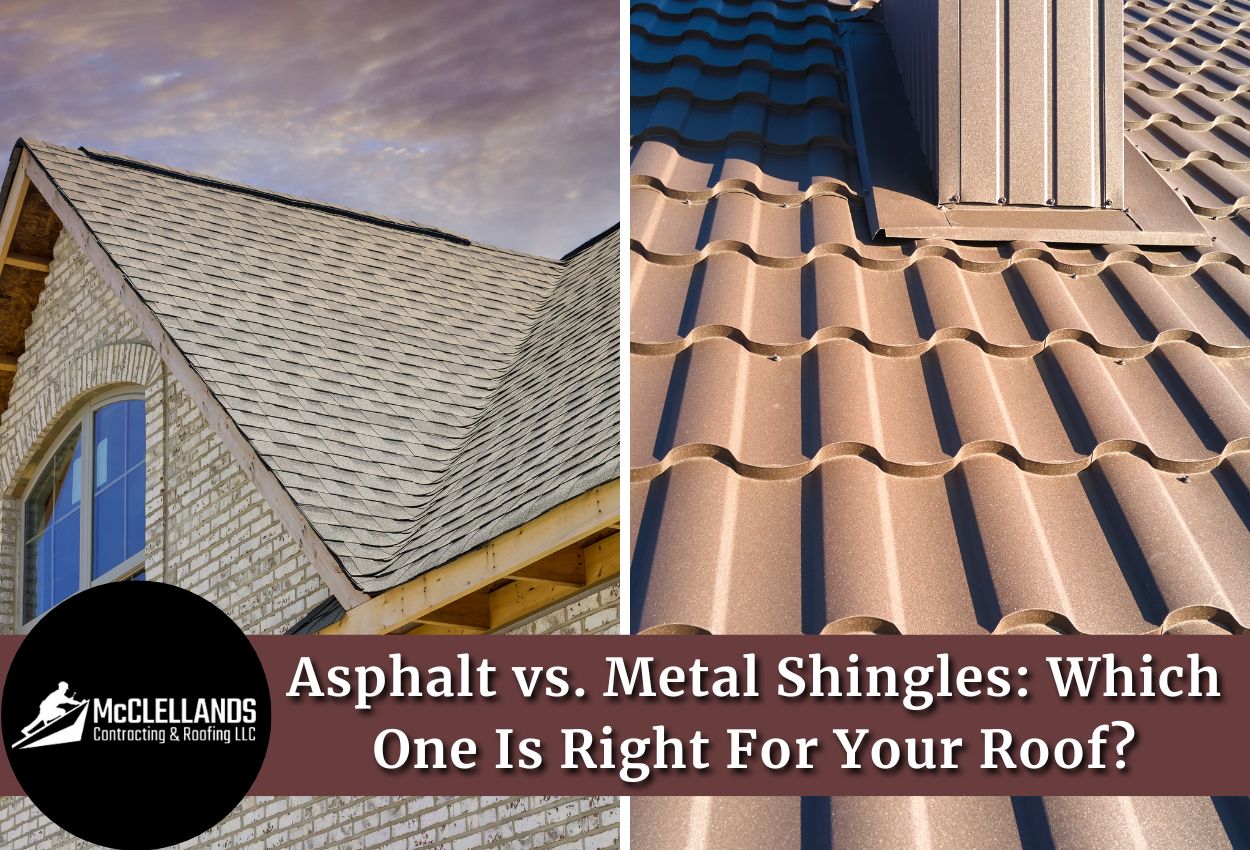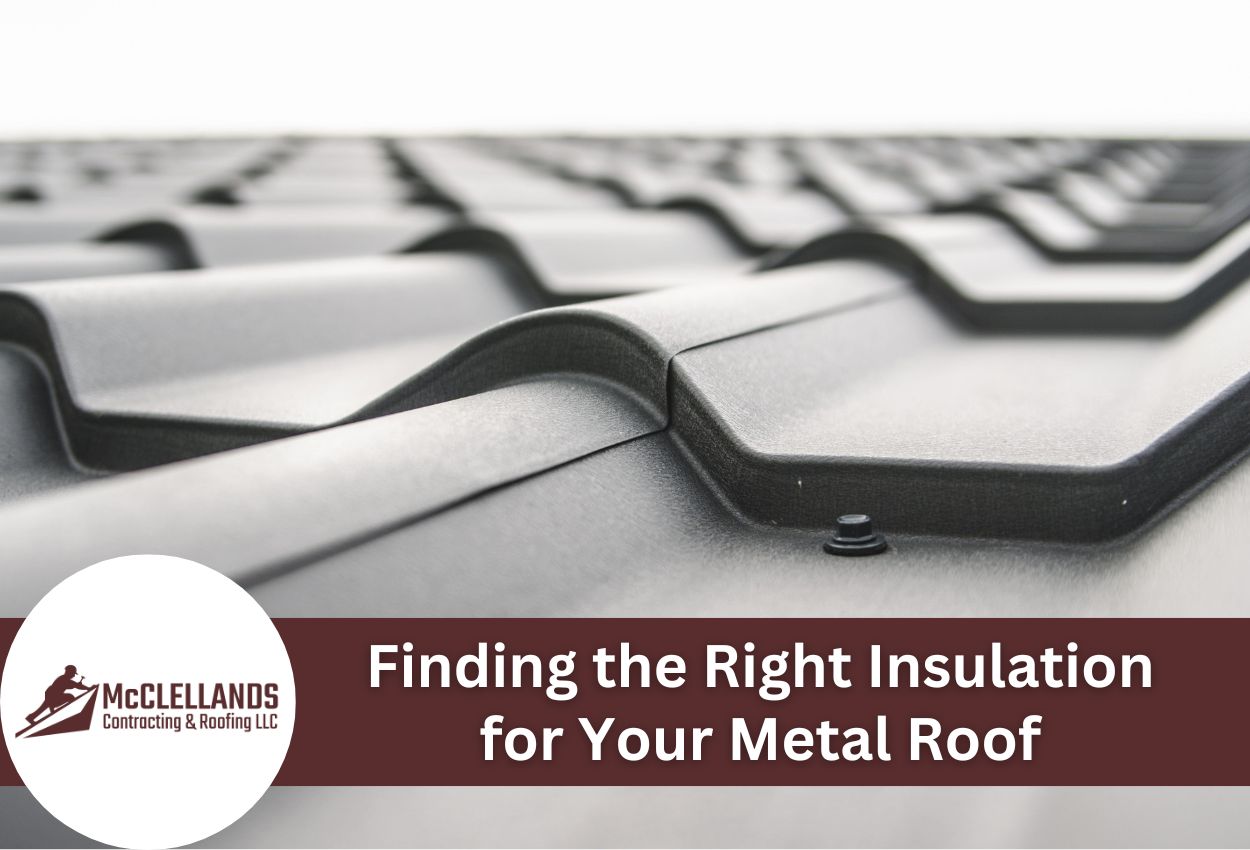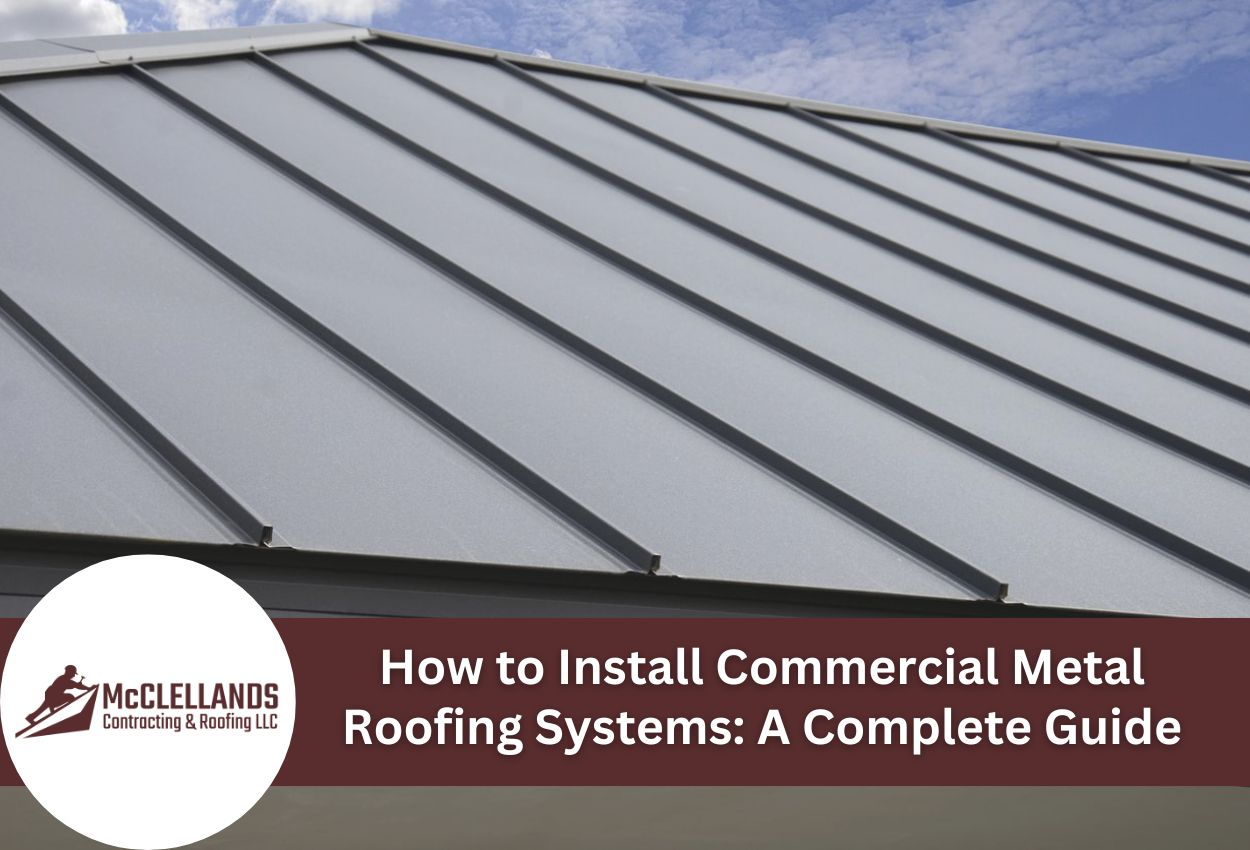We all know how important it is to choose the right roofing material for your home. Most residential buildings in the United States generally have asphalt shingles. However, we’ve seen metal shingles start to gain more and more popularity among homeowners.
At McClellands Contracting and Roofing, LLC, we aim to be the most trusted roofing company serving Pittsburgh and the surrounding areas of Pennsylvania.
In today's article, we will walk you through the comparison between asphalt vs. metal shingles. After reading, we hope you’ll find it easier to make the right choice for your home.
Asphalt vs. Metal Shingles: A Quick Comparison
When you're thinking about getting a new roofing material, you'll need to carefully consider several important factors to make the best choice for your home. Here’s a look at how asphalt and metal shingles compare across all the key aspects that matter most to homeowners.

#1 Initial Cost and Long-Term Value: Asphalt Shingles Win
The difference in price between metal and asphalt shingles is significant, and it's the first thing that homeowners generally consider.
Basic 3-tab asphalt shingles generally cost between $3.00 to $8.00 per square foot once installed. However, premium asphalt shingles end up costing around $12 per square foot, including installation charges.
Metal shingles, on the other hand, start at a comparatively higher price point. They typically cost around $6.00 to $25.00 per square foot once installed.
If you're considering premium metals like aluminum or copper, costs can range from $20.00 to $50.00 per square foot. However, you should remember that metal roofing's longer lifespan often justifies the higher initial investment.
#2 Lifespan and Durability: Metal Wins
When we look at how long these materials last, metal always outperforms asphalt shingles.
A properly installed metal roof can protect your home for around 40 to 70 years, with some premium materials lasting even longer. Since they have a long lifespan, their warranties tend to be even longer, coming in at around 20 to 50 years, showing just how confident manufacturers are in their products.
Asphalt shingles have a considerably shorter lifespan. Standard 3-tab shingles generally last around 15 to 20 years, while architectural shingles can last 20 to 30 years under ideal conditions. However, things like extreme weather, intense sunlight, and poor ventilation can significantly reduce these numbers.
#3 Maintenance Requirements and Repair Costs: Metal Wins
Your choice between asphalt vs. metal shingles will greatly affect your daily maintenance schedule and costs over the years. Metal shingles, especially standing seam systems, need minimal maintenance. You typically only need a thorough roof inspection once every year to check the fasteners and seams, followed by the occasional cleaning to maintain appearance.
Asphalt shingles require more regular attention. You should inspect an asphalt roof annually for:
👉 Cracked or missing shingles
👉 Curling or buckling shingles
👉 Loose granules in gutters
👉 Signs of water damage or leaks
👉 Moss or algae growth
👉 Damaged flashing around chimneys and vents
Repairs are generally simpler and cheaper when it comes to asphalt shingles, as individual shingles can be replaced easily. Metal roof repairs, while less frequent, usually cost more and require specialized expertise.
#4 Energy Efficiency: Metal Shingles Win
Metal shows impressive performance when it comes to energy efficiency. These roofs reflect up to 85% of solar heat, which can reduce cooling costs by 10 to 25% during summer months. The reflection of solar radiation helps keep your attic cooler, which means your air conditioning system doesn't have to work as hard.
Asphalt shingles, being darker and more heat-absorbent, generally retain more heat. This can make your attic 20 to 30 degrees warmer on hot summer days, increasing your cooling costs. However, newer "cool roof" asphalt shingles are available with better reflective properties, though they still don't match metal's performance.
#5 Environmental Sustainability: Metal Shingles Win
From an environmental perspective, metal roofing has several advantages:
👉 Most metal roofing systems contain 25 to 95% recycled content
👉 It's 100% recyclable at the end of its life
👉 Its longevity means less frequent replacement and less waste
👉 The energy efficiency reduces your home's carbon footprint
Asphalt shingles, being petroleum-based products, have a larger environmental impact. They tend to unfortunately contribute to construction waste, with about 11 million tons entering landfills annually in the United States alone.
#6 Weather Resistance and Performance: Metal Shingles Win
Metal roofs can easily withstand wind speeds up to 140 mph and impacts from hail and falling branches. They can also handle heavy snow loads without any prior damage and can prevent ice dams by providing a smooth surface texture.
While there's a common myth that metal roofs attract lightning, the truth is that metal shingles and panels are the most fire-resistant option you can purchase for a home, as they do not ignite. They are also no more likely to attract lightning than any other roofing material.
On the other hand, while asphalt shingles are capable of resisting severe weather conditions, asphalt is more vulnerable to weather damage compared to metal. Asphalt shingles may crack or break in extreme temperature changes, and you may notice granule loss over time, especially after periods of heavy rain.
But the good news is that asphalt shingles have adapted to modern construction upgrades to resist these weather-related challenges well. For example, if your area receives frequent hail, you can choose impact-resistant shingles to resist hail impacts well.
#7 Installation Process and Requirements: Asphalt Shingle Wins
While neither of these roofing materials is suitable for DIY installation or replacement, asphalt shingles are quite easy to install.
Asphalt shingle installation is straightforward and familiar to most roofing contractors. The process is faster and requires less specialized training or tools, which contributes to lower installation costs.
The process for metal shingle installation is a little more complicated as it involves precise measurements and custom shingle fabrication. You also need to make sure that you have the right tools and knowledge to handle and install the raw materials carefully.
Roofers generally also take more time to install metal shingles because they have to pay great attention to detail in order to achieve proper waterproofing.
#8 Resale Value and Market Appeal: Tie
Both materials can positively impact your home's resale value, but in different ways. Metal roofs often add more absolute value to your home because of their longevity and durability. Many homebuyers appreciate knowing they won't need to replace the roof for decades.
Asphalt shingles, while adding less total value, often provide a better short-term return on investment because of their lower initial cost. They're also familiar to most buyers and are accepted in virtually all neighborhoods and by many homeowners' associations.
Final Thoughts
Keep in mind, that your choice between metal and asphalt shingles should be based on several key factors: your budget, how long you plan to stay in your home, your local climate, and your priorities regarding maintenance and environmental impact.
While metal roofing systems cost more upfront, their longevity and durability often make a worthwhile investment for those planning to stay in their homes long term.
Schedule Your Professional Roof Installation In Pennsylvania Today!
At McClellands Contracting and Roofing, LLC, we are committed to providing high-quality local roofing services in Pittsburgh, and the surrounding areas of Pennsylvania.
We understand that every home and homeowner has different needs, and we're committed to providing you with expert guidance and quality installation services. Call us today at (412) 353 5660 to schedule a consultation and get started on your roofing project.




